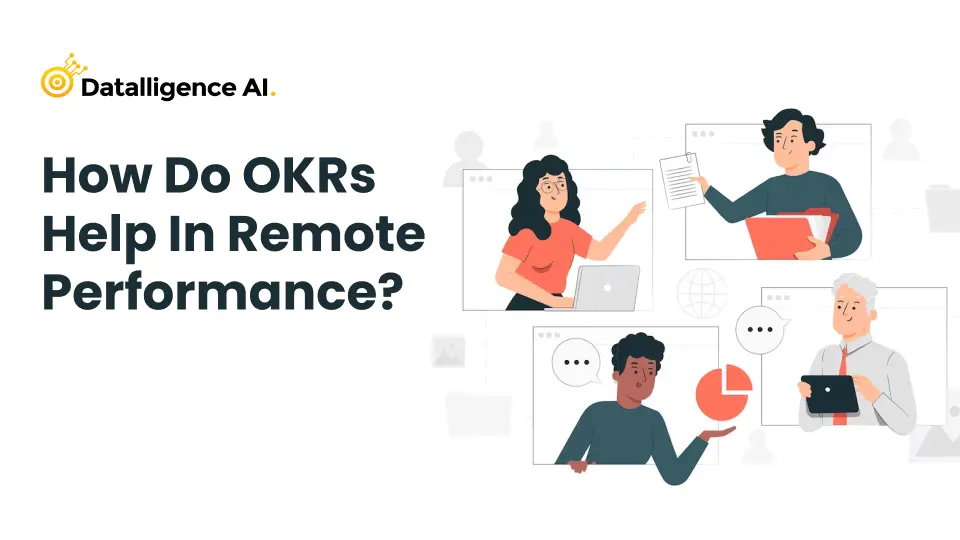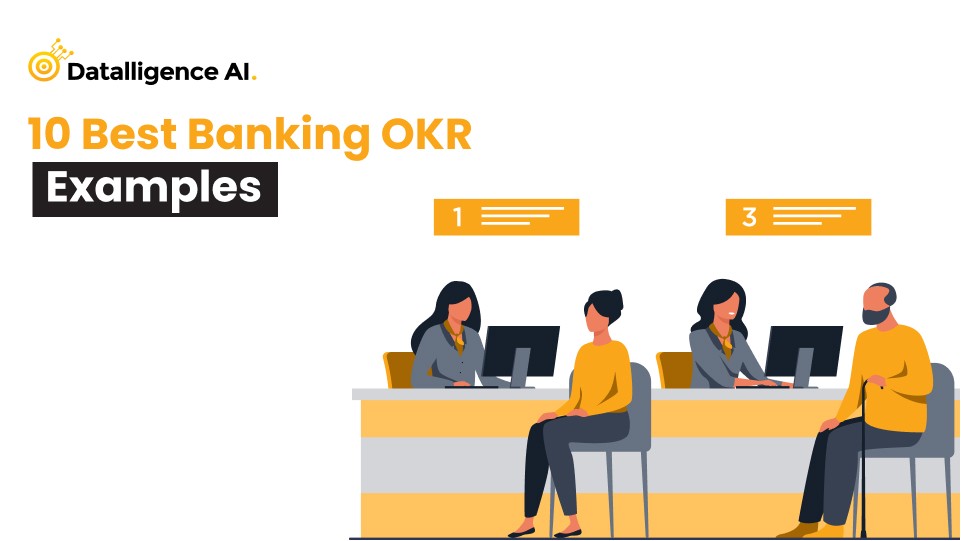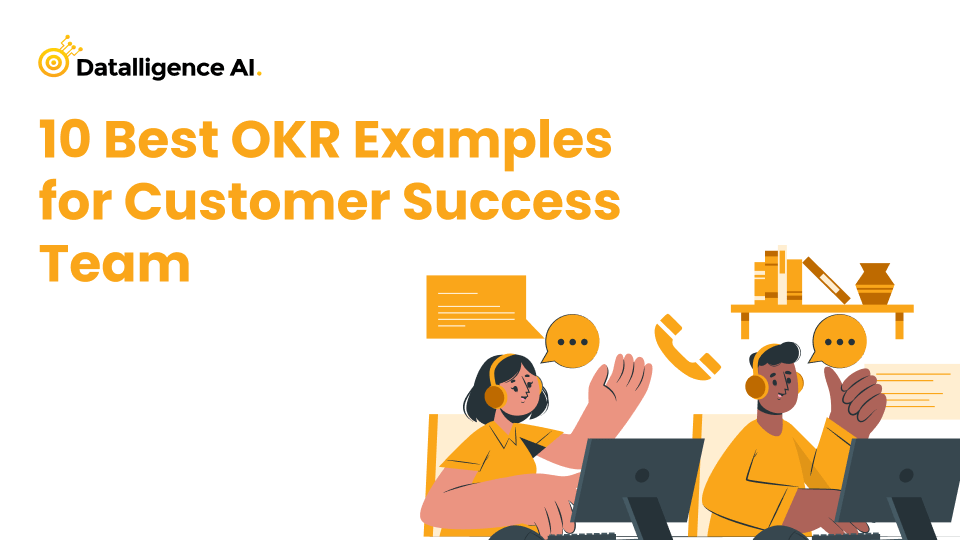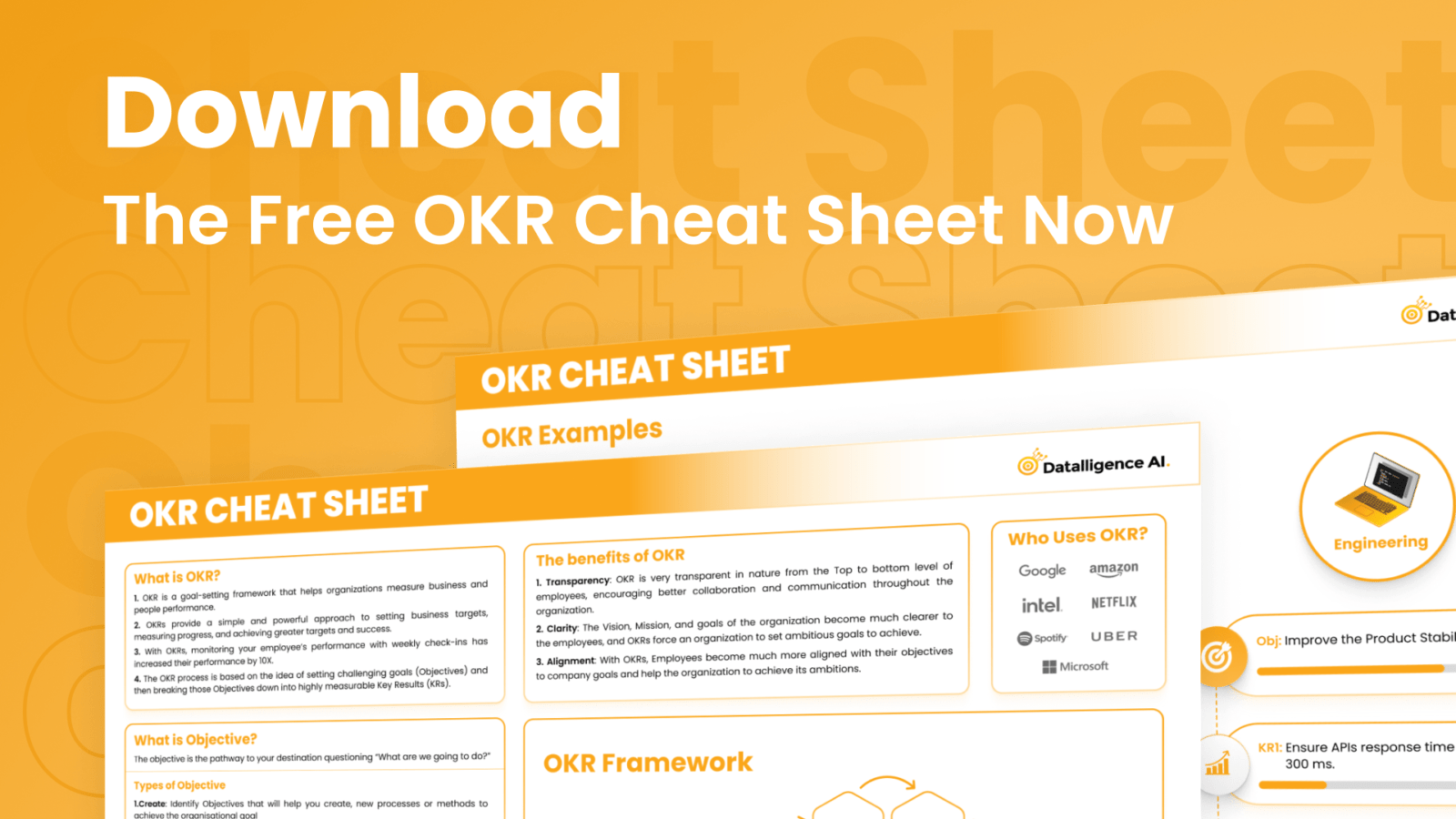OKR Benefits Translated for Remote Performance Management
Objectives and Key Results (OKRs) have emerged as a powerful methodology for enhancing remote team performance, particularly in the context of performance management reviews. By aligning individual goals with organizational objectives, OKRs provide clarity and drive accountability, which are essential for remote work success. Below are the key benefits of OKRs in improving remote performance:
-
Clarity in Organizational Objectives
OKRs inform employees about the organization’s priorities and their relative importance. This clarity helps remote workers understand their role in achieving company goals, fostering a sense of purpose even in virtual environments -
Alignment with Business Strategy
OKRs ensure that individual progress aligns with the organization’s overarching strategy. This alignment is critical for remote teams, as it provides direction and reduces the risk of employees feeling disconnected from the company’s vision -
Motivation and Engagement
By setting challenging yet achievable goals, OKRs motivate employees to perform at their best. Regular performance management reviews tied to OKRs can further boost engagement by offering constructive feedback and recognition -
Enhanced Collaboration
OKRs promote collaboration between employees and managers by encouraging frequent check-ins and discussions about progress. This is particularly valuable in remote settings where casual interactions are limited -
Simplified Tracking and Measurement
OKR tracking software enables organizations to monitor progress efficiently, providing real-time insights into goal achievement. These tools also facilitate performance management reviews by offering metrics that help evaluate individual contributions objectively -
Improved Accountability
OKRs drive accountability by making goals transparent and measurable. Remote workers can stay focused on their responsibilities while managers track progress through structured performance management systems
How Can OKRs Increase Remote Performance?
-
Goal Clarity: Setting specific, measurable objectives ensures that remote workers know what success looks like, reducing ambiguity in their roles
-
Feedback Loops: Frequent feedback sessions tied to OKRs help address challenges promptly and keep employees motivated
-
Data-Driven Insights: OKR tracking software provides valuable analytics that managers can use during performance management reviews to identify bottlenecks and optimize workflows
Recommended OKR Software for Remote Management
For organizations seeking efficient OKR tracking solutions, tools like Betterworks, Ally.io, or Gtmhub are highly recommended. These platforms integrate seamlessly with remote work environments, offering features such as goal alignment, real-time tracking, and analytics to support robust performance management reviews

#Steps to start OKRs for your remote teams
⦿ Communicate the organization objective through OKR software
⦿ Guide teams to set their department OKRs and team OKRs to align with the organization objective
⦿ Focus and prioritize objectives that matter to business
⦿ Create check-in habits
⦿ Monitor and review regularly
⦿ While the objectives are transparent that is the first way to earn trust from the team.
Increase Accountability
Strong relationships thrive on transparency. When organizations openly share information without holding back, they demonstrate trust in their employees. That trust, in turn, becomes a powerful motivator, pushing employees to give their best. In a traditional workplace, clarity around responsibilities and priorities was often lacking. Now, with dispersed and remote teams, that challenge has only intensified. This is where the best OKR software steps in—it creates clarity by defining organizational goals and linking them to measurable success through key performance metrics. Performance management reviews further reinforce this accountability by ensuring employees stay on track and understand their contributions to the bigger picture.
Create Alignment
Transparency builds relationships, but collaboration strengthens them. OKR management ensures that employees’ efforts align with the company’s overarching goals. Decades ago, the idea of fully remote teams seemed unrealistic. If companies had attempted it back then, success would have been unlikely. But today, businesses using OKRs have made remote work practical and effective. Senior managers set top-level OKRs, and teams work alongside their managers to define their own. This structured alignment—both top-down for direction and bottom-up for engagement—creates a seamless connection between individual, team, and company goals. Organizations operating across multiple teams now find it easier to stay coordinated and focused, thanks to the OKR framework.
Keep OKRs Quantifiable
Work used to be measured in hours. Remote work has shifted that mindset, proving that results matter more than time spent. OKRs embrace this results-driven approach by defining clear objectives and key results that measure success. Dashboards, tracking tools, and reporting features within OKR software make it easy to assess progress. Performance management reviews play a crucial role here, offering structured check-ins that ensure employees aren’t just working—but working towards meaningful impact. Interestingly, hitting 100% of a goal might indicate that the targets weren’t ambitious enough. The ideal OKR mindset encourages aiming for 60-70% achievement, pushing teams to stretch their capabilities while staying realistic.
⦿ Few pitfalls to avoid
⦿ Setting OKRs and forgetting
⦿ Creating OKRs that measures tasks
⦿ Don’t keep too many objectives
⦿ It should be ambitious but at the same time achievable
Conclusion
High-performing organizations that implement OKRs have seamlessly adapted to the shift toward remote operations and management. A study by Gartner found that 70% of companies now prioritize outcome-driven performance over traditional working hours. Remote work has redefined productivity—moving away from the outdated 9-to-5 model and focusing instead on measurable results.
OKRs play a critical role in this transition by setting clear objectives and key results that track impact, not just effort. Organizations leveraging OKR software have reported a 30% improvement in goal alignment and 25% higher employee engagement, according to a McKinsey report. Performance management reviews further reinforce this approach, ensuring that employees stay accountable and continuously improve their contributions.
To drive remote performance like top industry leaders, businesses must integrate OKRs with structured performance management reviews. Start your journey today with a free trial of Datalligence OKR and experience the power of data-driven performance measurement.










